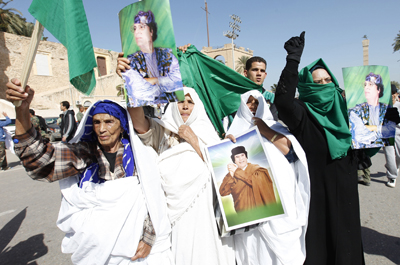New York, February 16, 2011—The Committee to Protect Journalists is concerned about the continued assaults on journalists covering anti-government demonstrations in the Middle East. In recent days, journalists have been obstructed, assaulted, or detained in Libya, Bahrain, Iran, and Yemen. Authorities have also slowed down Internet connection and blocked websites, according to local journalists.
“It’s alarming to see Libya, Bahrain, Yemen, and Iran, take a page from Egypt and Tunisia to use violence and censorship to stop coverage of political unrest,” said
Unrest in the region has been growing since late December when Tunisians began a revolt against President Zine El Abidine Ben Ali’s 23-year rule and since the collapse of the Mubarak regime in Egypt in February.
In Libya, writer and blogger Mohamed Ashim was detained today after security forces raided his home and confiscated his computer and mobile phone, according to news reports. Taqi al-Din al-Shalawi, the director of Irassa, a local, independent news website, and Abdel Fattah Bourwaq, the site’s editor-in-chief, were summoned for questioning by internal security forces, according to daily newspaper Libya Al-Youm. Benghazi, Libya’s second largest city, today saw widespread anti-government demonstrations. Thirty-eight people have been injured, according to news reports. Activists are calling for additional demonstrations across Libya on Thursday, in what has been dubbed a “Day of Rage.”
In Bahrain, the government has selectively reduced the speed of Internet connections inside the country for the past two days, journalists and activists in the country told CPJ. Currently, the Internet is being slowed down selectively in newspaper offices, hotels, and homes but not in governmental institutions, local journalists told CPJ. Also, a number of accounts on the video-sharing website Bambuser were blocked according to CPJ’s sources. On Tuesday, Hassan Jamali, a photojournalist working for The Associated Press was summoned for questioning by the Interior Ministry after taking pictures of people injured in anti-government demonstrations, a colleague speaking on condition of anonymity told CPJ. Authorities ordered him to not take additional pictures of the injured.
In Yemen, two journalists were beaten after being accused of working for Al-Jazeera, local journalists told CPJ. One of the attacked was Hassan al-Watat; CPJ was unable to identify the second journalist. On Tuesday, BBC Arabic correspondent Abdullah Ghorab and his cameraman, Mohamed Omran, were beaten by “men from the ruling party” while covering anti-government demonstrations in Sana’a, Ghorab told Agence France-Presse. Ghorab appeared on BBC and Al-Jazeera broadcasts with blood on his face and hands immediately following the attack.
In Iran, mobile phone service, which had been severed on Sunday and Monday, has been restored. However, Internet service remains very slow throughout the country, according to news reports, making it very difficult for people to upload photographs or videos of the confrontations taking place on the streets. Numerous reformist news websites have been intermittently blocked over the past week, according to journalists and news reports.
